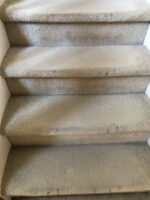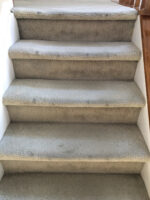Blogs
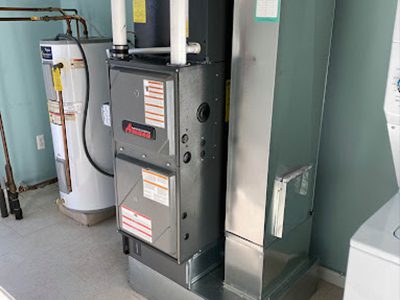

Five Benefits of Installing A Garage Heater In Your Home
Winter is coming! Is your garage ready for the upcoming cold season? Many homeowners neglect their garage before the winter until it causes them problems. Today, people are deciding to heat their garages because of the added room and the benefits to safety. Do you need garage heater installation? See the key reasons behind this trend’s success! It Is Safe For Your Family For your household, they are safer. Due to the hazardous carbon monoxide emissions, you should never use your remote starter when parking inside your garage, even when it’s freezing outside. A garage heater will keep your car warm and prepared for the trip while protecting your family. It Keeps You and Your Car Warm In Winter Both you and your car will be kept warm by these heaters. It will help prolong the life of the battery in your vehicle. A garage heater will also help you use less fuel and power because you won’t need to warm up your car or plug in the block heater like you do when you park outside. Maintaining your car will be simpler, and driving won’t require you to clear snow and scrape ice off the road! They are Compact and Quiet Garage heaters are becoming smaller and more effective as technology advances. Many garage heater models don’t need ducting, which makes them much more discrete and space-efficient. Unit heaters are typically suspended from the ceiling and direct hot air downward, providing spot heating. Garage heaters are now working more quietly than before. They are Cost-Efficient A garage heater might fluctuate in price depending on the size of the area you want to heat and how fast you need it to warm up. Garage heaters that burn propane or natural gas must vent through side-wall or roof venting. A well-installed, energy-efficient garage heater will not increase your electricity bill. They Provide Your House with Better Living Space A garage heater is perfect for you if you’ve ever wanted to use your garage as a shop or simply as a place for the kids to play and run around. You can create a unique living environment by making the most of the space in your garage with the help of a garage heater. Final Thoughts In addition to securing your car and providing comfort and convenience on chilly winter days, garage heaters let you use valuable space at your home. If you want a garage heater installation in New Jersey for your garage, give us a call. Our certified HVAC specialists will inspect your garage and provide you with the best options. Schedule a free consultation with the experts at Professor Gatsby Heating and Cooling today to benefit from the comforts of a warm garage during winter.


Benefits of Variable Speed Air Conditioners
Basics of single stage air conditioning Most American homes with central air conditioning use a single stage compressor. These compressors were standard for decades, and they continue to represent the majority of AC units we service in South Jersey. A single stage compressor turns on when indoor temperatures exceed the temperature setting on your thermostat. For example, if you set the thermostat to 75 degrees, the air conditioner will run anytime indoor temperatures hit 76 degrees. After the AC cools the house back to 75 degrees, it will turn off again. Single stage compressors always operate at 100% capacity. They turn themselves on and off continuously throughout the day. Basics of variable speed air conditioning Variable speed compressors work differently. In order to maintain an indoor temperature that matches the setting on your thermostat, they operate continuously at less than 100% capacity – often as low as 25% or 30% capacity. As a result, they run for much longer cycles than single stage AC units. In summertime, they might run for all or most of the day! Here’s one way to get your head around the difference: Single stage compressors blast your home with cold air and turn themselves off when when the desired temperature is reached. Variable speed compressors blow a smooth, steady stream of cold air into your home to maintain the desired indoor temperature, rarely turning themselves off. What about a two stage compressor? Good question! A two stage or dual stage compressor sits somewhere between single stage and variable speed systems in terms of how it functions. While it doesn’t operate at a wide range of capacities like a variable speed unit, it does vary its output somewhat. A single stage AC offers one level: high. A two stage AC offers two levels: high and low. It runs at full capacity when you need it to and at a lower level when you don’t. Two stage units don’t run as continuously as a variable speed AC, but they do cycle on and off less frequently than single stage systems. How variable speed compressors improve comfort and efficiency At this point, you’re probably thinking, “It’s hot out there! Why would I want an air conditioner that runs longer and cools my home more slowly?” For one thing, a variable speed compressor’s longer run times dehumidify your home more effectively than the relatively brief cycles of a single stage unit. One of the biggest problems with single stage compressors is that they’re not running continuously. Relative humidity increases whenever the AC isn’t on, making you feel hotter and more uncomfortable. This is especially acute when an air conditioner is oversized, as they often are. Most people deal with this problem by lowering the temperature on their thermostat, which brings us to the other benefit of variable speed compressors: cost. A single stage compressor blasts your home with cold air before it turns itself off. Then it turns on again when the indoor temperature increases. Most of your air conditioner’s electricity draw occurs when it turns on, not while it’s running. In the summer, a single stage compressor turns on and off a lot, a process known as “short cycling.” Do you see where this is going? Since single stage compressors tend to short cycle, they usually draw a lot more electricity than a variable speed unit that turns on and stays on for hours. As a result, the single stage AC is much more expensive to operate! When it comes to comfort and efficiency: Single stage air conditioners don’t dehumidify indoor air very well, forcing you to lower the temperature setting on your thermostat. They also turn on and off a lot, which increases your energy bill. Two stage compressors don’t turn on and off nearly as much. They’re more efficient than single stage units, but not as efficient as variable speed compressors. Variable speed air conditioners run continuously, effectively dehumidifying the air inside your home. As a result, you feel comfortable at higher temperatures and don’t have to set your thermostat to a low temperature. And since they don’t turn on as often, variable speed AC units lower your utility costs. There are fringe benefits, too. Believe it or not, more effective cooling and greater efficiency aren’t the only benefits of a variable speed compressor. If you’re concerned about indoor air quality, opting for a two stage or variable speed unit can help purify the air circulating around your home, resulting in healthier conditions for you and your family. Since they dehumidify indoor air more effectively than a single stage unit, a more efficient system helps you: Eliminate mold growth in bathrooms and kitchens Prevent the proliferation of dust mites Create conditions that are inhospitable to insect intruders And since variable speed units run more frequently, they also filter your indoor air more effectively. More air is cycled through your return ducts – and your air filters – resulting in a lower volume of air contaminants. They’re also quieter than single stage compressors. If you’re used to cool air exploding into your home like a sudden gust of wind, you’ll probably be surprised by the variable speed unit’s more subdued, consistent air flow.
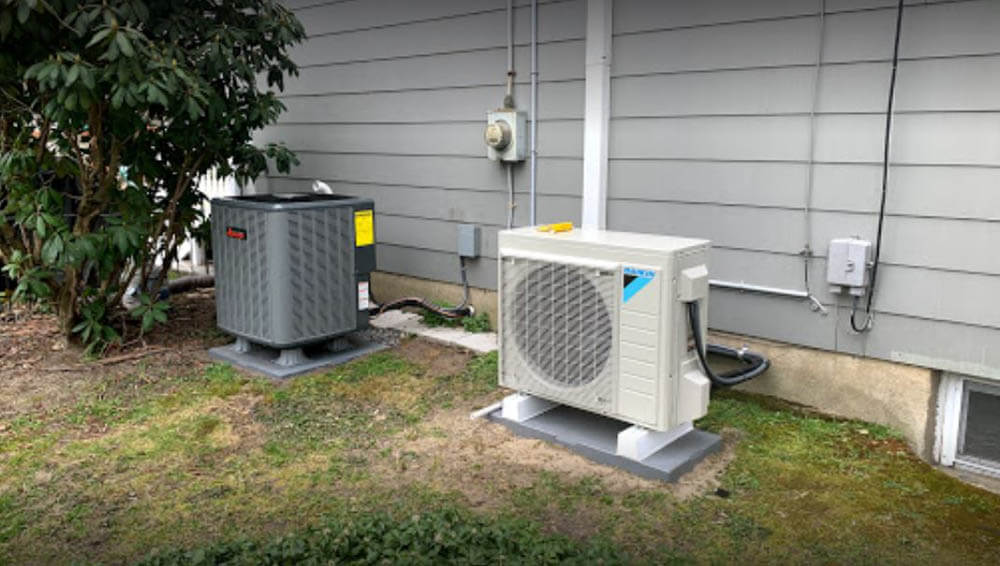

Stay Allergy-Free: Managing Indoor Allergens During the Summer Months
While summer brings warm weather and outdoor adventures, it also heralds the arrival of allergens that can wreak havoc on allergy sufferers. Contrary to popular belief, indoor allergens are not limited to the winter months. In fact, the summer season can introduce a whole new set of triggers that can affect your indoor air quality and overall well-being. In this blog post, we’ll guide you through effective strategies to manage indoor allergens and create a sanctuary of allergy relief within your home during the vibrant summer months. Keep Windows Closed: As inviting as a gentle summer breeze may seem, it can also carry pollen and outdoor allergens into your living spaces. To minimize their entry, make an effort to keep windows and doors closed, especially during peak pollen times. Consider using air conditioning with a clean and well-maintained filter to circulate and cool your indoor air. Regular Cleaning: Maintaining a clean and allergen-free home environment is crucial for allergy relief. Regular dusting, vacuuming, and mopping can help remove dust mites, pet dander, and other allergens that may have settled on surfaces. Pay special attention to areas like carpets, rugs, upholstery, and curtains. Air Purification: Investing in high-quality air purifiers can significantly improve indoor air quality by effectively filtering out allergens. HEPA (High-Efficiency Particulate Air) filters are especially beneficial, capturing even the tiniest airborne particles that can trigger allergies. Place air purifiers strategically in common areas and bedrooms for maximum effectiveness. Pet Care: For pet owners, managing indoor allergens becomes a priority year-round. Regular grooming, including brushing and bathing your furry companions, can help minimize shedding and dander. Designate pet-free zones in your home, such as bedrooms, to create allergy-free retreats. Maintain HVAC System: Your HVAC system plays a crucial role in controlling indoor allergens. Regularly changing your HVAC filters can prevent the buildup of dust, pollen, and other particles. Consider using allergen-specific filters designed to capture even the smallest irritants. Schedule professional HVAC maintenance to ensure optimal system performance and cleanliness. While summer may bring its share of allergens, you don’t have to surrender to their discomfort. By implementing these indoor allergen management strategies, you can create a haven of allergy relief within your home, allowing you and your family to enjoy the season to the fullest. From keeping windows closed to investing in air purifiers and practicing consistent cleaning routines, you have the power to minimize indoor allergens and breathe easy during the vibrant summer months. Embrace these proactive measures and make your home a sanctuary where allergies have no place.
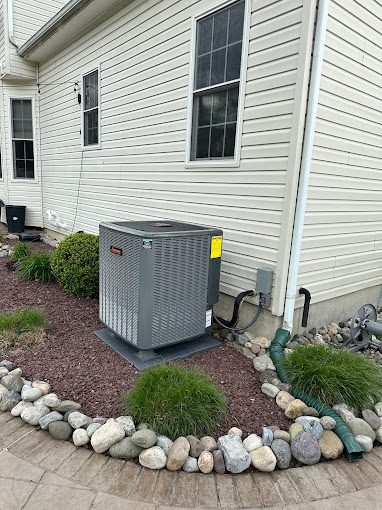

Top Things that could be wrong with your air conditioner
My Air Conditioner isn’t working, what could be wrong? Is your air conditioner not working properly? It can be frustrating when your AC isn’t keeping you cool during the hot summer months. There are several common issues that can occur with air conditioning systems. Here are some signs to watch out for and the potential problems they may indicate: Warm or Cool Air Blowing Out of Vents, Unit Won’t Keep Up: If your air conditioner is blowing air that is not cold enough or struggling to keep up with the desired temperature, it could be due to a low refrigerant level. Low refrigerant can result in poor cooling performance and increased energy consumption. Water or Ice Leaking Near the Heater Area: Water or ice leaks near the heater area could indicate a plugged condensate drain. When the drain is clogged, the system may shut off to prevent flooding or damage. It’s important to address this issue promptly to avoid further complications. Thermostat Set to 70 but Won’t Keep Up: If you’ve set your thermostat to a specific temperature but the AC fails to reach it, there might be a problem with the thermostat itself. It could be malfunctioning or require recalibration. Poor or No Airflow Out of Your Vents: Insufficient airflow from the vents could be a result of a clogged air filter, blocked ductwork, or a malfunctioning blower motor. Restricted airflow can decrease cooling efficiency and comfort levels. Thermostat Isn’t Working Properly or Screen Is Black: A malfunctioning thermostat can cause inaccurate temperature readings or a non-responsive screen. This issue may require recalibration, battery replacement, or even a thermostat replacement. Air Conditioner Running Outside, but No Air Coming Out of Vents: If the outdoor unit is running, but there is no airflow from the vents, there could be an issue with the blower motor or a blockage in the ductwork. A professional inspection is necessary to diagnose and resolve the problem. Buzzing Sound Coming from Outside Unit: A buzzing sound coming from the outdoor unit could indicate a faulty electrical connection or a failing component. It’s important to address this issue promptly to prevent further damage. Loud Noises, Rattling Noises Near Furnace or Outside AC Area: Unusual noises, such as rattling or banging sounds, may indicate loose or damaged components. These noises should be investigated by an HVAC professional to prevent potential system breakdowns. Tripping Electric Breaker: If your air conditioner repeatedly trips the electric breaker, it could be due to an electrical issue, such as a short circuit or overload. This problem should be addressed by a licensed professional to ensure safety and prevent electrical hazards. While it may be tempting to attempt air conditioner repairs yourself, it’s important to consider the potential risks and drawbacks. Here are a few reasons why it’s generally best to leave AC repairs to licensed HVAC professionals: Safety: Air conditioning systems involve high voltage electrical components and potentially hazardous refrigerants. Without proper knowledge and training, DIY repairs can pose risks of electric shock, burns, or exposure to harmful chemicals. Warranty Concerns: Many air conditioner manufacturers require repairs to be performed by licensed HVAC professionals to maintain the system’s warranty. DIY repairs may void the warranty and leave you responsible for future repairs or replacements. Costly Mistakes: Air conditioning systems are complex, and attempting repairs without proper expertise can lead to costly mistakes. Misdiagnosing the problem, using incorrect parts or tools, or causing further damage to the system can result in additional expenses. Code Violations: HVAC professionals are trained to follow local building codes and safety regulations when working on air conditioning systems. DIY repairs can potentially violate these codes, leading to fines or penalties. In conclusion, it’s best to entrust air conditioner repairs to licensed HVAC professionals who have the knowledge, training, and tools necessary to diagnose and fix issues safely and effectively. This ensures that your system is repaired correctly, operates efficiently, and provides the cooling comfort you need during the hot South Jersey summers.
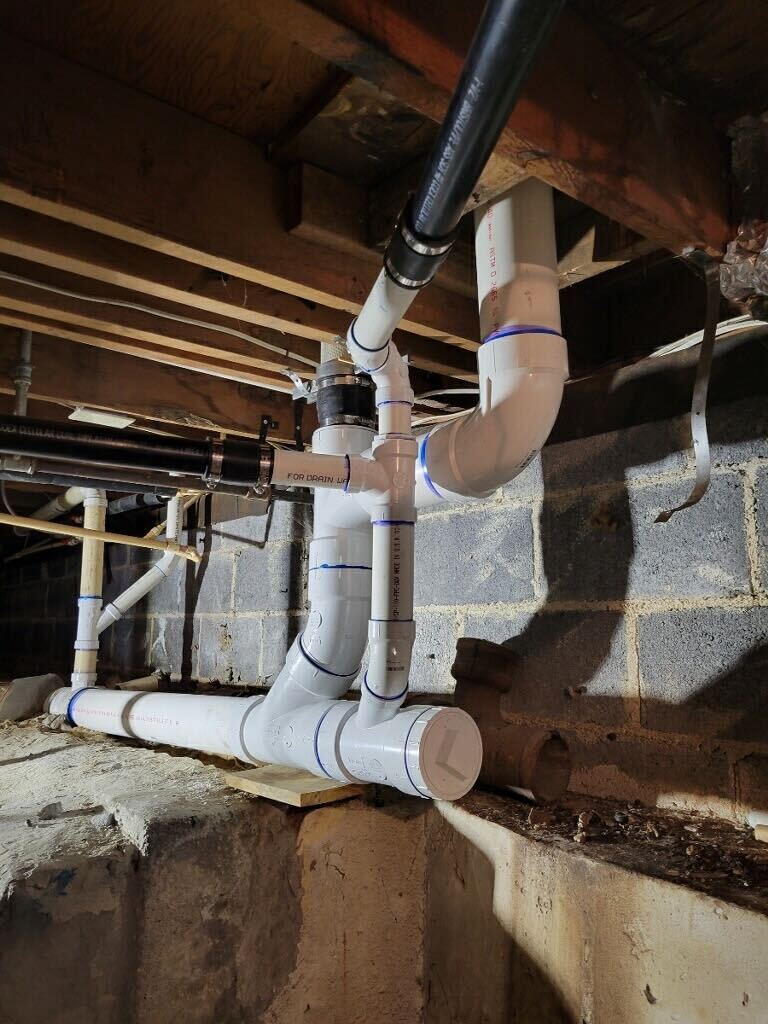

Navigating Winter Plumbing Woes in South Jersey: Tips for Homeowners
Navigating Winter Plumbing Woes in South Jersey: Tips for Homeowners As winter blankets South Jersey with its chilly embrace, homeowners must prepare for the unique plumbing challenges that the season brings. From frozen pipes to cold-weather emergencies, understanding how to navigate winter plumbing issues is essential for maintaining a functional and secure home. In this blog, we’ll explore common winter plumbing woes in South Jersey, offer preventive maintenance tips, and provide guidance on handling plumbing emergencies during the coldest months. The Freeze Threat: Understanding South Jersey’s Winter Plumbing Woes: South Jersey’s winter can be unforgiving, with freezing temperatures that pose a threat to plumbing systems. Frozen Pipes: The risk of frozen pipes is a primary concern during winter. Explore the common areas where pipes are vulnerable to freezing and understand the potential consequences. Burst Pipes: Frozen pipes can lead to burst pipes, causing extensive damage to your home. Learn about the signs of burst pipes and the immediate actions to take when they occur. Preventive Measures for Winter Plumbing Woes: Arm yourself against winter plumbing issues by implementing preventive measures to protect your home. Insulation is Key: Ensure that pipes, especially those in unheated areas, are well-insulated. Insulation can be a game-changer in preventing freezing. Drip Faucets: Allow faucets to drip slowly during extremely cold nights. This continuous flow of water helps prevent pipes from freezing. Seal Drafts: Seal any drafts or openings in your home to keep cold air out. This not only helps with energy efficiency but also protects your plumbing. Seasonal Maintenance Tips for Winter Plumbing Resilience: Adopting a proactive approach to seasonal maintenance is crucial for winter plumbing resilience. Heating System Check: Ensure that your heating system is in top-notch condition. Regular maintenance will not only keep you warm but also prevent freezing issues. Gutter Clean-Up: Clear gutters of debris to prevent ice dams. Proper drainage is essential for avoiding water backups that can impact your plumbing. What to Do in Case of Winter Plumbing Emergencies: Despite best efforts, emergencies can still occur. Knowing how to respond is key to minimizing damage. Shut Off Water: In the event of a burst pipe or significant leak, locate and shut off the main water valve immediately to prevent further damage. Call a Professional: Have the contact information of a reliable plumbing professional on hand. Winter emergencies may require prompt attention from an expert. Conclusion Winter in South Jersey can be a picturesque wonderland, but it comes with its own set of plumbing challenges. By understanding the risks, implementing preventive measures, and knowing how to respond to emergencies, homeowners can navigate winter plumbing woes with confidence. Protect your home, ensure the comfort of your family, and embrace the beauty of winter without fearing its impact on your plumbing. Stay warm, stay informed, and let your home be a haven even in the coldest of seasons.
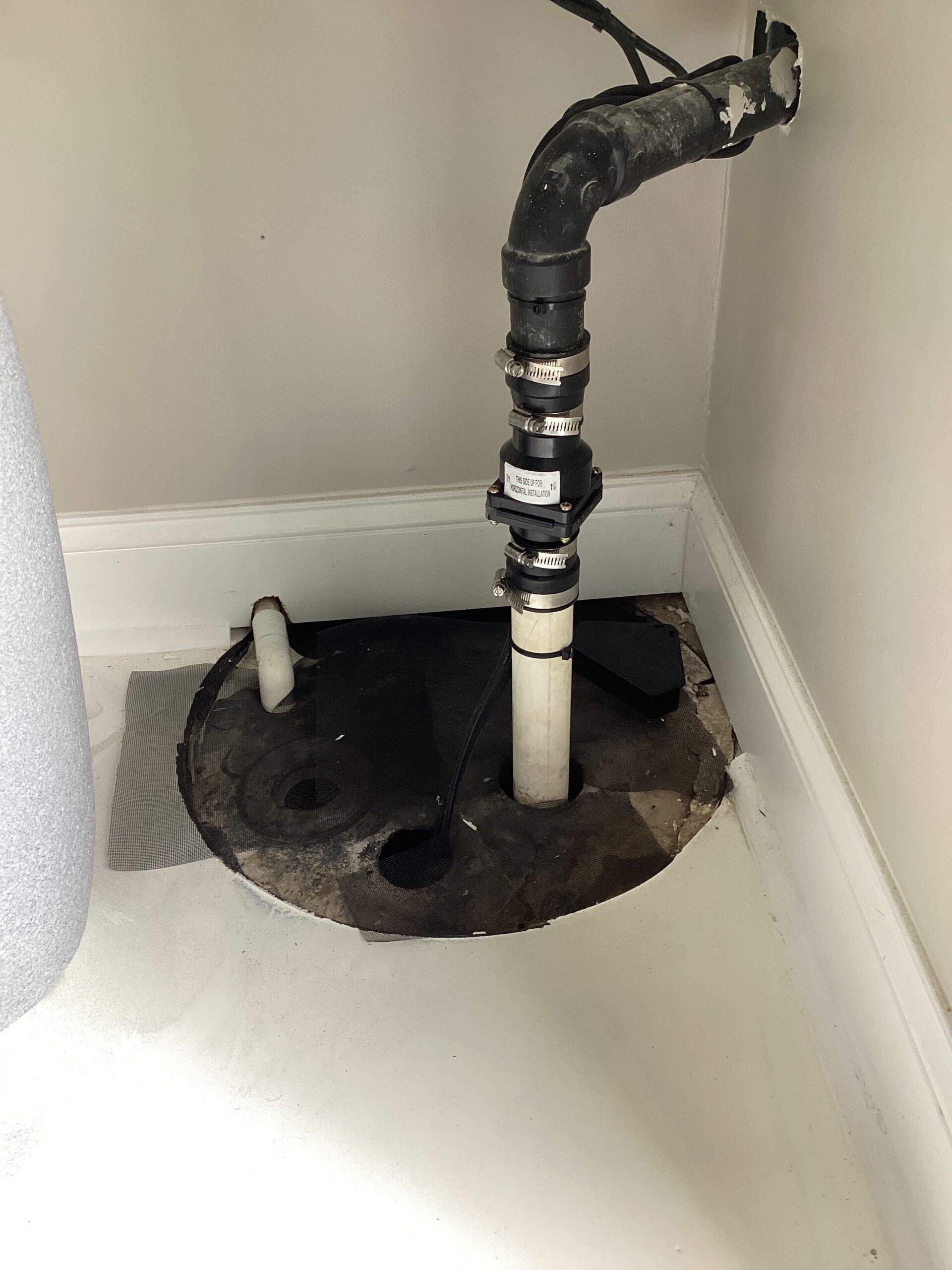

The Importance of Backflow Prevention in South Jersey: What You Need to Know
The Importance of Backflow Prevention in South Jersey: What You Need to Know In the world of plumbing, one topic that deserves attention, especially for South Jersey residents, is backflow prevention. Ensuring the safety of your home’s water supply is paramount, and understanding the importance of backflow prevention is a crucial step. In this blog, we’ll delve into why backflow prevention matters in South Jersey, exploring local regulations, real-life examples, and the potential consequences of neglecting this vital aspect of plumbing safety. Understanding Backflow and Its Significance: Backflow occurs when the flow of water reverses direction, bringing contaminated water back into the clean water supply. This can happen due to changes in water pressure, posing a serious threat to the quality of the water we use every day. Significance in South Jersey: With varying weather conditions and potential pressure fluctuations, South Jersey homes are susceptible to backflow incidents. Understanding and preventing backflow is crucial for maintaining a safe water supply. Local Regulations and Guidelines: South Jersey, like many regions, has specific regulations and guidelines in place to ensure the prevention of backflow incidents. South Jersey Backflow Regulations: Familiarize yourself with local regulations governing backflow prevention. Many municipalities require backflow prevention devices to be installed and regularly tested to comply with safety standards. Mandatory Inspections: Some areas in South Jersey may mandate annual inspections of backflow prevention devices. Adhering to these regulations is not only a legal requirement but also a responsibility to the community. Real-Life Examples and Consequences: llustrating the real-life implications of neglecting backflow prevention can drive home the importance of this essential plumbing measure. Health Risks: Backflow can introduce contaminants such as bacteria, fertilizers, and chemicals into the water supply. This poses severe health risks to residents and can lead to waterborne illnesses. Infrastructure Damage: Neglecting backflow prevention can result in damage to plumbing infrastructure. The reversal of water flow can cause corrosion, leaks, and deterioration of pipes and fixtures. Backflow Prevention Tips for South Jersey Homes: Offering practical tips for homeowners to prevent backflow incidents is crucial for maintaining a safe water supply. Install Backflow Prevention Devices: Consider installing backflow prevention devices, such as backflow preventer valves, to safeguard your water supply. Regular Inspections: Schedule regular inspections and testing of backflow prevention devices to ensure they are functioning correctly and in compliance with local regulations. Conclusion In South Jersey, where the charm of the region is complemented by unique challenges, prioritizing backflow prevention is a responsibility shared by homeowners and the community alike. By understanding the significance of backflow prevention, complying with local regulations, and taking proactive measures, residents can ensure a safe and reliable water supply for their homes. Let’s work together to make South Jersey’s water infrastructure resilient and secure for generations to come.


